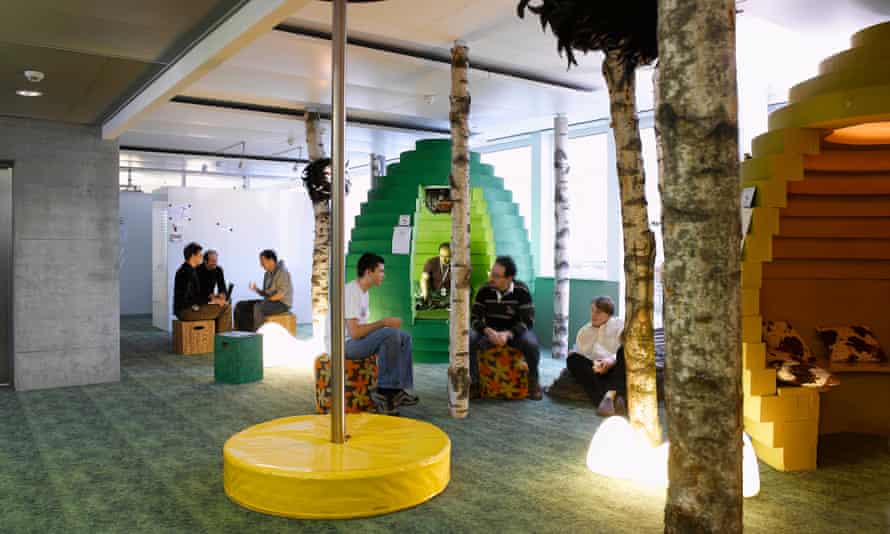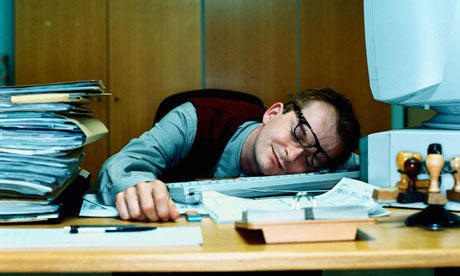From The Economist
In an episode of “The Sopranos”, a popular television series which started airing in the 1990s, a gangster tells Tony, from the titular family, that he wants to retire. “What are you, a hockey player?” Tony snaps back. Non-fictional non-criminals who are considering an end to their working lives need not worry about broken fingers or other bodily harm. But they must still contend with other potentially painful losses: of income, purpose or, most poignantly, relevance.
Some simply won’t quit. Giorgio Armani refuses to relinquish his role as chief executive of his fashion house at the age of 89. Being Italy’s second-richest man has not dampened his work ethic. Charlie Munger, Warren Buffett’s sidekick at Berkshire Hathaway, worked for the investment powerhouse until he died late last year at the age of 99. Mr Buffett himself is going strong at 93.
People like Messrs Armani, Buffett or Munger are exceptional. But in remaining professionally active into what would historically be considered dotage, they are not unique. One poll this year found that almost one in three Americans say they may never retire. The majority of the nevers said they could not afford to give up a full-time job, especially when inflation was eating into an already measly Social Security cheque. But suppose you are one of the lucky ones who can choose to step aside. Should you do it?
The arc of corporate life used to be predictable. You made your way up the career ladder, acquiring more prestige and bigger salaries at every step. Then, in your early 60s, there was a Friday-afternoon retirement party, maybe a gold watch, and that was that. The next day the world of meetings, objectives, tasks and other busyness faded. If you were moderately restless, you could play bridge or help out with the grandchildren. If you weren’t, there were crossword puzzles, tv and a blanket.
Although intellectual stimulation tends to keep depression and cognitive impairment at bay, many professionals in the technology sector retire at the earliest recommended date to make space for the younger generation, conceding it would be unrealistic to maintain their edge in the field. Still, to step down means to leave centre stage—leisure gives you all the time in the world but tends to marginalise you as you are no longer in the game.
Things have changed. Lifespans are getting longer. It is true that although the post-retirement, twilight years are stretching, they do not have to lead to boredom or to a life devoid of meaning. Once you retire after 32 years as a lawyer at the World Bank, you can begin to split your time between photography and scrounging flea markets for a collection of Americana. You don’t have to miss your job or suffer from a lack of purpose. If you are no longer head of the hospital, you can join Médecins Sans Frontières for occasional stints, teach or help out at your local clinic. Self-worth and personal growth can derive from many places, including non-profit work or mentoring others on how to set up a business.
But can anything truly replace the framework and buzz of being part of the action? You can have a packed diary devoid of deadlines, meetings and spreadsheets and flourish as a consumer of theatre matinees, art exhibitions and badminton lessons. Hobbies are all well and good for many. But for the extremely driven, they can feel pointless and even slightly embarrassing.
That is because there is depth in being useful. And excitement, even in significantly lower doses than are typical earlier in a career, can act as an anti-ageing serum. Whenever Mr Armani is told to retire and enjoy the fruits of his labour, he replies “absolutely not”. Instead he is clearly energised by being involved in the running of the business day to day, signing off on every design, document and figure.
In “Seinfeld”, another television show of the 1990s, Jerry goes to visit his parents, middle-class Americans who moved to Florida when they retired, having dinner in the afternoon. “I’m not force-feeding myself a steak at 4.30 just to save a couple of bucks!” Jerry protests. When this guest Bartleby entered the job market, she assumed that when the day came she too would be a pensioner in a pastel-coloured shirt opting for the “early-bird special”. A quarter of a century on, your 48-year-old columnist hopes to be writing for The Economist decades from now, even if she trundles to her interviews supported by a Zimmer frame; Mr Seinfeld is still going strong at 69, after all. But ask her again in 21 years.
'People will forgive you for being wrong, but they will never forgive you for being right - especially if events prove you right while proving them wrong.' Thomas Sowell
Search This Blog
Wednesday, 31 January 2024
Why You Should Never Retire
Tuesday, 19 December 2023
The world’s richest countries in 2023
From The Economist
Comparing the wealth of nations is harder than you might think. Countries with lots of people tend to have bigger economies, but that does not mean that individual incomes are high. Dollar income per person is the most common metric for sorting countries into rich and poor, but it does not account for international differences in prices. Nor does it account for how many hours people have to work to earn their wage. To provide a fuller picture, The Economist has created a global rich list using the latest available data on three measures: dollar income per person, adjusted income for local prices (known as purchasing-power parity, or ppp), and income per hour worked. See where each country ranks below.
The findings show how fickle economics can be. Take America. Its gdp is by far the largest at market exchange rates. But its income per person is only the seventh highest in the world, and eighth when adjusting for local prices. When accounting for the long workdays and limited holiday, it drops to 11th. China—the world’s second-largest economy in nominal terms—comes 65th by gdp per person and 96th by hours worked. Other countries with gruesome work cultures also see big shifts: South Korea ranks 31st on our first measure and 30th on our second, but 47th on our third.
In much of western Europe the trend goes in the opposite direction: places such as Belgium, Germany and Sweden fly up the rankings when their lower prices or enviable work-life balance are taken into account. Wages in Luxembourg go the furthest in local prices. And Norway has the world’s highest average income per hour worked. (See the top 20 countries in the chart above.)
These calculations will be imprecise. ppp conversions, for example, struggle to capture differences in the quality of goods and services. Methods for calculating hours worked may differ; it is especially hard to estimate them for poor countries with large informal sectors (read our full methodology here). And the data from some countries cannot be trusted. Some countries (notably China) have very high savings rates, so even their ppp-adjusted gdp per hour will not reflect their living standards. The ranking also captures people’s average incomes (what they earn), not their assets (what they already have). But the comparison offers a more complete assessment of the world’s richest countries than a focus on any single measure—it shows where your money goes furthest, and where long hours may not always pay off.
Thursday, 22 April 2021
Burnt out: is the exhausting cult of productivity finally over?
In the US, they call it “hustle culture”: the idea that the ideal person for the modern age is one who is always on, always at work, always grafting. Your work is your life, and when you are not doing your hustle, you have a side-hustle. Like all the world’s worst ideas, it started in Silicon Valley, although it is a business-sector thing, rather than a California thing.
Since the earliest days of tech, the notion of “playbour”, work so enjoyable that it is interchangeable with leisure, has been the dream. From there, it spiralled in all directions: hobbies became something to monetise, wellness became a duty to your workplace and, most importantly, if you love your work, it follows that your colleagues are your intimates, your family.
Which is why an organisation such as Ustwo Games likes to call itself a “fampany”. “What the hell is that?” says Sarah Jaffe, author of Work Won’t Love You Back. “A lot of these companies’ websites use the word ‘family’, even though they have workers in Canada, workers in India, workers in the UK; a lot of us don’t even speak the same language and yet we’re a ‘family’.” Meanwhile, companies such as Facebook and Apple have offered egg-freezing to their employees, suggesting that you may have to defer having a real family if you work for a fake one.
 A grownup soft-play area: inside the Google office in Zurich, Switzerland. Photograph: Google
A grownup soft-play area: inside the Google office in Zurich, Switzerland. Photograph: GoogleThe tech companies’ attitudes have migrated into other “status” sectors, together with the workplaces that look like a kind of grownup soft-play, all colourful sofas and ping-pong and hot meals. In finance, food has become such a sign of pastoral care that Goldman Sachs recently sent junior employees hampers to make up for their 100-hour working weeks. If you actually cared about your staff, surely you would say it with proper working conditions, not fruit? But there is an even dicier subtext: when what you eat becomes your boss’s business, they are buying more than your time – they are buying your whole self.
Then Elon Musk weighed in to solve that niggling problem: what’s the point of it all? Making money for someone else, with your whole life? The billionaire reorientated the nature of work: it’s not a waypoint or distraction in the quest for meaning – work is meaning. “Nobody ever changed the world on 40 hours a week,” he memorably tweeted, concluding that people of vision worked 80 or more, eliding industry with passion, vision, society. Say what you like about him but he knows how to build a narrative.
Hustle culture has proved to be a durable and agile creed, changing its image and language while retaining its fundamentals. Sam Baker, author of The Shift: How I (Lost and) Found Myself After 40 – And You Can Too, worked an 80-hour week most of her life, editing magazines. “The 1980s were, ‘Put on a suit and work till you drop,’” she says. “Mark Zuckerberg is, ‘Put on a grey T-shirt and work till you drop.’” The difference, she says, is that “it’s all now cloaked in a higher mission”.
What has exposed the problems with this whole structure is the pandemic. It has wreaked some uncomfortable but helpful realisations – not least that the jobs with the least financial value are the ones we most rely on. Those sectors that Tim Jackson, professor of sustainable development at Surrey University and author of Post Growth: Life After Capitalism, describes as “chronically underinvested for so long, neglected for so long” and with “piss-poor” wages, are the ones that civilisation depends on: care work, retail, delivery.
 Elon Musk … ‘Nobody ever changed the world on 40 hours a week.’ Photograph: Brendan Smialowski/AFP/Getty Images
Elon Musk … ‘Nobody ever changed the world on 40 hours a week.’ Photograph: Brendan Smialowski/AFP/Getty ImagesMany of the rest of us, meanwhile, have had to confront the nonessentiality of our jobs. Laura, 43, was working in private equity before the pandemic, but home working brought a realisation. Being apart from colleagues and only interacting remotely “distilled the job into the work rather than the emotions being part of something”. Not many jobs can take such harsh lighting. “It was all about making profit, and focusing on people who only care about the bottom line. I knew that. I’ve done it for 20-odd years. I just didn’t want to do it any more.”
Throw in some volunteering – which more than 12 million people have during the pandemic – and the scales dropped from her eyes. She ended up giving up her job to be a vaccination volunteer. She can afford to live on her savings for now, and as for what happens when the money runs out, she will cross that bridge when she comes to it. The four pillars of survival, on leaving work, are savings, spouses, downsizing and extreme thrift; generally speaking, people are happiest talking about the thrift and least happy talking about the savings.
Charlotte White, 47, had a similar revelation. She gave up a 20-plus-year career in advertising to volunteer at a food bank. “I felt so needed. This sounds very selfish but I have to admit that I’ve got a lot out of it. It’s the opposite of the advertising bullshit. I’d end each day thinking: ‘My God, I’ve really helped someone.’ I’ve lived in this neighbourhood for years, and there are all these people I’ve never met: older people, younger people, homeless people.”
With the spectre of mortality hovering insistently over every aspect of life, it is not surprising that people had their priorities upended. Neal, 50, lost his job as an accountant in January 2020. He started applying for jobs in the same field. “I was into three figures; my hit rate was something like one interview for 25. I think I was so uninterested that it was coming across in my application. I was pretending to be interested in spreadsheets and ledgers when thousands of people were dying, and it just did not sit right.” He is now working in a psychiatric intensive care unit, earning just above the minimum wage, and says: “I should have done it decades ago. I’m a much better support worker than I ever was an accountant.”
This is a constant motif: everybody mentions spreadsheets; everyone wishes they had made the change decades ago. “For nine months, my partner and I existed on universal credit,” Neal says, “and that was it. It was tough, we had to make adjustments, pay things later, smooth things out. But I thought: ‘If we can exist on that …’”
 The tyranny of work … Could change be its own reward? Photograph: Bob Scott/Getty Images
The tyranny of work … Could change be its own reward? Photograph: Bob Scott/Getty ImagesSo why have we been swallowing these notions about work and value that were nonsense to begin with, and just getting sillier? We have known that the “higher mission” idea, whether it was emotional (being in a company that refers to itself as a “family”) or revolutionary (being “on” all the time in order to change the world) was, as Baker puts it “just fake, just another way of getting people to work 24 hours a day. It combined with the email culture, of always being available. I remember when I got my BlackBerry, I was working for Cosmopolitan, it was the best thing ever … It was only a matter of months before I was doing emails on holiday.”
But a lot of status came with feeling so indispensable. Unemployment is a famous driver of misery, and overemployment, to be so needed, can feel very bolstering. Many people describe having been anxious about the loss of status before they left their jobs; more anxious than about the money, where you can at least count what you are likely to have and plan around it. As Laura puts it, “not being on a ladder any more, not being in a race: there is something in life, you should always be moving forward, always going up”. And, when it came to it, other people didn’t see them as diminished.
Katherine Trebeck, of the Wellbeing Economy Alliance, is keen to broaden the focus of the productivity conversation. “To be able to have the choice, to design your own goals for your own life, to develop your own sense of where you get status and esteem is a huge privilege; there’s a socio-economic gradient associated with that level of autonomy,” she says. In other words: you have to have a certain level of financial security before your own emotional needs are at all relevant.
“When I was at Oxfam, we worked with young mothers experiencing poverty,” Trebeck says. “Just the pressure to shield their kids from looking poor made them skimp on the food they were providing. Society was forcing them to take those decisions between hunger and stigma.” She is sceptical about individual solutions and is much more focused on system change. Whether we are at the bottom or in the middle of this ladder, we are all part of the same story.
Part of the scam of the productivity narrative is to separate us, so that the “unskilled” are voiceless, discredited by their lack of skill, while the “skilled” don’t have anything to complain about because if they want to know what’s tough, they should try being unskilled. But in reality we are very interconnected – especially if working in the public sector – and you can burn out just by seeing too closely what is going on with other people.
Pam, 50, moved with her husband from London to the Peak District. They were both educationalists, he a headteacher, she in special educational needs (SEN). She describes what drove their decision: “If you think about a school, it’s a microcosm of life, and there have been very limited resources. Certainly in SEN, the lack of funding was desperate. Some kids just go through absolute hell: trying to get a CAMHS [Child and Adolescent Mental Health Services] appointment is nigh on impossible, kids have to be literally suicidal for someone to say: ‘OK, we’ll see you in two months.’”
They moved before the pandemic, and she found a part-time job with the National Trust, before lockdown forced a restructure. She hopes to resume working in the heritage sector when it reopens. Her husband still does some consultancy, but the bedrock of their security, financially speaking, is that the move out of London allowed them to “annihilate the mortgage”.
 A rewarding alternative … volunteers working at a foodbank in Earlsfield, south London. Photograph: Charlotte White/PA
A rewarding alternative … volunteers working at a foodbank in Earlsfield, south London. Photograph: Charlotte White/PACreative and academic work, putatively so different from profit-driven sectors, nevertheless exploits its employees using, if anything, a heightened version of the same narrative: if what you do is who you are, then you’re incredibly lucky to be doing this thoughtful/artistic thing, and really, you should be paying us. Elizabeth, 39, was a performer, then worked in a theatre. “My eldest sister used to be an archaeologist, and that sounds different, but it’s the same: another job where they want you to be incredibly credentialed, incredibly passionate. But they still want to pay you minimum wage and God forbid you have a baby.”
There is also what the management consultants would call an opportunity cost, of letting work dominate your sense of who you are. You could go a whole life thinking your thing was maths, when actually it was empathy. I asked everyone if they had any regrets about their careerist years. Baker said: “Are you asking if I wish I’d had children? That’s what people usually mean when they ask that.” It actually wasn’t what I meant: whether you have children or not, the sense of what you have lost to hyperproductivity is more ineffable, that there was a better person inside you that never saw daylight.
When the furlough scheme came in, Jennifer, 39, an academic, leapt at the opportunity to cut her hours without sacrificing any pay. “I thought there’d be a stampede, but I was the only one.” She makes this elegant observation: “The difference between trying 110% and trying 80% is often not that big to other people.”
If the past year has made us rethink what skill means, upturn our notions of the value we bring to the world around us, fall out of love with our employers and question productivity in its every particular, as an individual goal as well as a social one, well, this, as the young people say, could be quite major. Certainly, I would like to see Elon Musk try to rebut this new consciousness in a tweet.
Friday, 31 July 2020
Economics for Non Economists 3 – Explaining GDP and Economic Growth
Country
|
GDP
($ trillions)
|
Economic growth over previous year (%)
|
Per Capita GDP ($)
|
Share of World GDP (%)
|
19.5
|
2.2
|
59, 939
|
24
|
|
12.2
|
6.9
|
8,612
|
15
|
|
4.9
|
1.7
|
38,214
|
6
|
|
3.7
|
2.2
|
44,680
|
4.5
|
|
2.7
|
6.7
|
1,980
|
3.28
|
|
2.6
|
1.8
|
39.532
|
3,26
|
Saturday, 31 August 2019
The agony of returning to work in September
For eight improbable years, TS Eliot earned his crust as a clerk for Lloyds Bank. He did not have the excuse of ignorance, therefore, when he misidentified April as the “cruelest month”. All working people know the real ogre to be September. Millions of us are winding down our summer holidays around now and answering the call of necessary employment.
I enjoy my job to an almost indecent degree. Yet even I felt a pang as I flew out of Perugia recently and into my nine-to-five (or, if you must, my eleven-to-two). La rentrée is all the harsher on people with proper jobs.
The sour atmosphere in airport departure lounges does at least clarify something. The search for pleasure and meaning in work is, beyond a certain point, a fool’s errand. No doubt, some jobs are better than others. But as long as work is an obligation — something one must do, to uphold a standard of living — there is a limit to the joy it can ever bring. Leisure will always feel better, and by a margin that is unbridgeable with worker-friendly offices and other blandishments.
I started my career just before any of this needed saying. But then the promise began to emerge of work that need not feel like work. Companies vied to lay on the most ergonomic environments, the kindest mentors, the loosest schedules. A generation of in-demand graduates came to expect not just these material incentives but a sort of credal alignment with their employer’s “values”. The next recession will retard this trend but it is unlikely to kill it.
All of this is as it should be. I was raised by people who had to toil without any of these perks. I don’t romanticise it as an era of Spartan virtue. Whatever companies do to nudge their staff up Maslow’s hierarchy of needs is to be saluted.
The perk to really haggle for is not in-job comfort but the maximisation of paid leave.
It is just that the kindest service we can do for the young is manage their expectations. Work can be made a lot better than it might otherwise be. It cannot be made to be something other than work. The idea is taking hold, I sense, that it is odd to do something that is not exactly what you would wish to be doing at a particular moment. But this is the lot of even the most “creative” worker, the most self-governing entrepreneur. Very few professional tasks are so absorbing as to be one’s first-choice pursuit in circumstances of total freedom.
A personal ambition is to reach the end of my career without having managed a single person. Friends who have been less lucky, who have whole teams under their watch, report a quirk among their younger charges. It is not laziness or obstreperousness or those other millennial slanders. It is an air of disappointment with the reality of working life. They will be among the people described in Bullshit Jobs by the anthropologist David Graeber. They will not be among the mere 18 per cent who told YouGov in 2015 that work was “very fulfilling”. As much as the fogey in me blames their entitlement, they were promised more than was plausible by company brochures and a culture that pretends an office can feel like something else.
Companies are only able to soften the experience of employment so much. What they cannot finesse out of existence is the crux: the surrender of time for money that you would ideally fill with something else. The perk to really haggle for, then, is not in-work comfort but the maximisation of paid leave.
Twenty years have passed since Office Space, and the cult film remains the acutest satire of alienating employment. In the central scene, workers do to an eternally malfunctioning printer more or less what liberated Iraqis did to statues of Saddam Hussein.
It has one dud note, though, and it comes at the end, when the main character quits his office cubicle for life as a construction worker. The message is that manual labour does not have its own kind of soul-sucking boredom and pressure. It takes a cocooned sort to believe this kind of thing, but lots of people believe it of careers other than their own. The simplest jobs and the most cerebral are both heroised. But the defining thing about work is not its exact content. It is the fact that you have to do it. Look around at the faces in the departure lounge. In a stratified labour force, a rare unifier is dread of the cruelest month.
Monday, 20 August 2012
Fixing Britain's work ethic is not the answer to this economic mess

